Maximizing Efficiency with a Hybrid Inverter Solar System: How It Works and Its Benefits
A hybrid inverter solar system integrates various energy sources to enhance the efficiency and flexibility of solar power setups. Here’s an overview of what this system entails, how it operates, and its benefits:
What is a Hybrid Inverter Solar System?
A hybrid inverter solar system combines solar power with energy storage (batteries) and often integrates with the electrical grid. The hybrid inverter plays a crucial role in managing and optimizing the flow of energy between these components. It is designed to:
– Convert direct current (DC) from solar panels into alternating current (AC) for home use.
– Manage and control the charging and discharging of batteries.
– Allow interaction with the grid, enabling the system to use grid power when necessary and potentially send excess solar energy back to the grid.
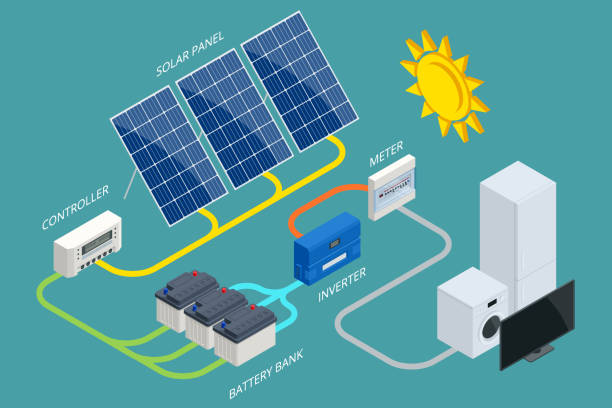
Key Components
- Solar Panels: These capture sunlight and convert it into DC electricity.
- Hybrid Inverter: This device converts DC electricity from the solar panels into AC electricity for household use. It also manages battery charging and discharging and facilitates grid interaction.
- Battery Storage: Batteries store excess solar energy produced during the day for use when solar production is low or during power outages.
- Grid Connection: Allows the system to draw power from or feed excess energy into the grid, depending on the system’s configuration and local regulations.
How Does a Hybrid Inverter Solar System Work?
- Energy Generation: Solar panels generate DC electricity from sunlight.
- Conversion and Management: The hybrid inverter converts this DC electricity into AC power suitable for home appliances. Simultaneously, it manages the charging of batteries with surplus solar energy.
- Energy Storage: Excess energy is stored in batteries for later use. The hybrid inverter controls this process to ensure batteries are charged efficiently and are not overcharged or deeply discharged.
- Grid Interaction: When the solar panels do not produce enough energy or during peak demand periods, the hybrid inverter can draw power from the grid. If the system produces more energy than needed, the inverter can send excess power back to the grid, depending on local regulations and incentives.
- Energy Usage: The system uses stored energy during times of low solar production or high energy demand, minimizing reliance on grid power and enhancing overall energy efficiency.
Benefits of a Hybrid Inverter Solar System
- Enhanced Energy Efficiency: By storing excess energy and using it during low production periods, the system maximizes the use of solar power and reduces waste.
- Increased Energy Independence: Battery storage allows users to rely less on grid power, providing a backup during outages and reducing dependency on external energy sources.
- Cost Savings: The ability to store and use solar energy reduces electricity bills by decreasing the need for grid power, especially during peak pricing times.
- Optimized Grid Interaction: Hybrid inverters manage the flow of electricity between the solar panels, batteries, and the grid, allowing users to take advantage of time-of-use rates and other grid benefits.
- Scalability: Hybrid inverter systems can be easily scaled up by adding more solar panels or batteries, making them adaptable to changing energy needs.
- Reduced Environmental Impact: By utilizing stored solar energy and reducing reliance on fossil fuels, hybrid inverter systems contribute to a decrease in carbon footprint and promote sustainable energy practices.
Choosing a Hybrid Inverter Solar System
When selecting a hybrid inverter solar system, consider the following factors:
- System Size: Ensure the inverter is compatible with the size of your solar array and battery storage needs.
- Battery Compatibility: Verify that the hybrid inverter is compatible with the type and brand of batteries you plan to use.
- Local Regulations: Check local regulations and incentives for solar energy and battery storage, as these can affect system design and cost.
- Energy Needs: Assess your energy consumption patterns to determine the optimal capacity and features for your hybrid inverter.
- Brand and Reliability: Choose a reputable brand with a track record of reliability and customer support.
Conclusion
A hybrid inverter solar system offers a comprehensive solution for optimizing solar energy usage, providing reliable backup power, and enhancing overall system efficiency. By integrating solar panels, battery storage, and grid interaction, hybrid inverters enable users to maximize their investment in solar energy and contribute to a more sustainable and efficient energy future.
Contact us
- Email:[email protected]
- Tel: +86 13651638099
- Address: 333 Fengcun Road, Fengxian District, Shanghai
Get A Quote Now!
Related product links are available directly
Site storage products:Site storage products 归档 – (energystoragecontainer.com)
Lithium Battery:Lithium Battery 归档 – (energystoragecontainer.com)
Read more
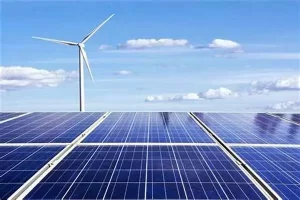
Unveiling Photovoltaic+Energy Storage: Four Major Application Scenarios Leading the Future of Energy
In this way, the energy landscape is evolving, and one of the most thrilling developments in renewables is the integration of photovoltaics energy storage.
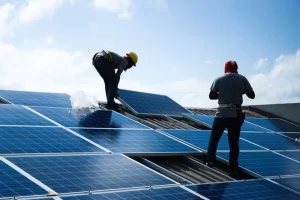
From Theory to Practice: Four Methods for Estimating Photovoltaic Power Generation
Photovoltaic power generation has become an essential part of modern energy solutions, particularly in home solar systems and distributed power applications
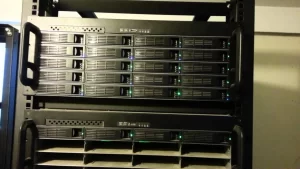
Rack-Mounted Lithium Iron Batteries: Creating Efficient and Reliable Energy Storage Solutions
When it comes to modern energy solutions, rack-mounted lithium iron batteries are taking center stage in a variety of industries. Whether you’re powering data centers, stabilizing energy for households, or keeping critical systems online at 5G base stations, these batteries have become the unsung heroes of our electrified world.
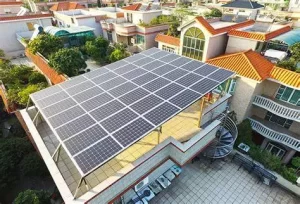
Late Night Energy Saving Tips: How to Maximize Electricity Savings During Off-Peak Hours
With rising energy costs, homeowners are increasingly exploring innovative ways to save on their electricity bills. One effective approach is utilizing off-peak hours—times when electricity rates are significantly lower due to reduced demand.
